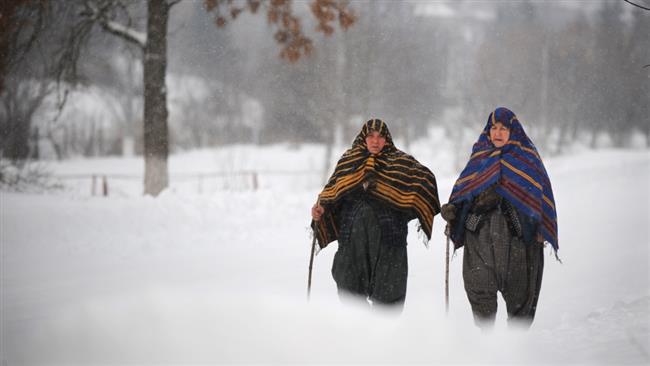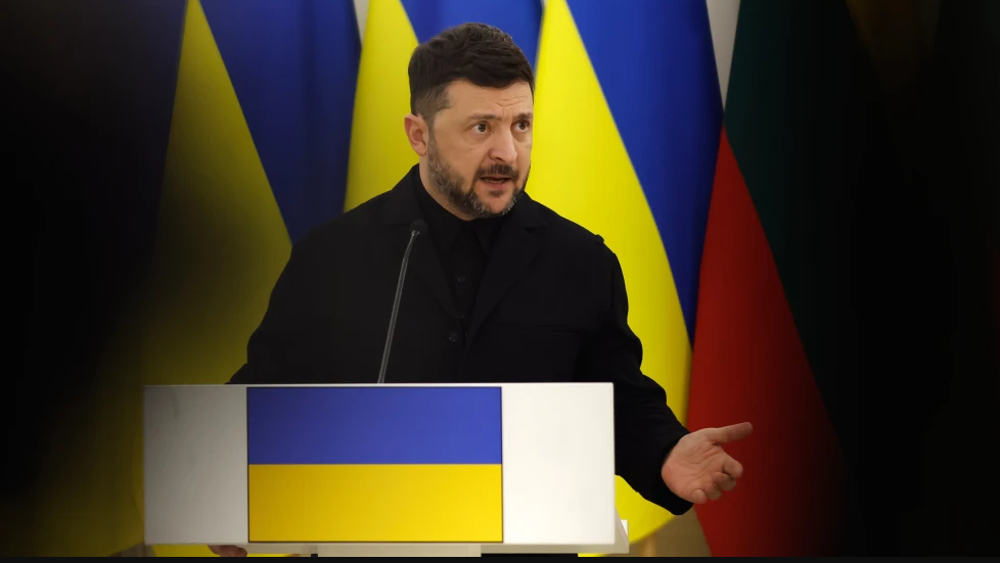Snowstorms disrupt everyday life across Europe, claim nine lives
Snowstorms have disrupted the everyday life of people across Europe, with blizzards claiming at least nine lives.
Land and air transportation were disrupted on Friday.
In Poland, winter conditions killed five people, three from hypothermia and two from inhaling carbon monoxide caused by malfunctioning heaters, the government Security Center said.
The temperatures in the country dropped to minus 25 degrees Celsius in the southern mountainous region, winds whipped up to 90 kilometers per hour, and more than 2,000 households were without heating in the southern area of Rybnik.
Four people died as a result of the cold weather in Ukraine’s Lviv region near the Polish border.
In Romania, 90 people were rescued from stranded cars, while dozens more were awaiting rescue. Over 40 trains were not running due to heavy snow on tracks. More than 620 people who needed dialysis and 126 conceiving pregnant women were saved by emergency and rescue forces.
Heavy snow and wind shut roads and some train services in central Italy and forced the cancelation of some ferry crossings to islands off Naples and Sicily.
Serbia's state television reported that 22 people, including children, were injured in a pileup caused by the wintry weather on the outskirts of the southern city of Nis. Local official Dragan Dimitrijevic said emergency crews were "helpless against the wind" and snow drifts that piled up to two meters high. "New piles form almost immediately after we clear up," he said.
Turkish Airlines canceled 192 domestic and international flights that were scheduled for Saturday after heavy snow, icy conditions and strong winds were forecast for Istanbul.

Bulgarian authorities said some 650 villages across the country were without electricity due to high winds and heavy snow.
Emergency officials rescued snowed-in residents in villages in northern Albania, where up to 120 centimeters of snow fell, leading to power outages.
The temperatures dipped below freezing even along Croatia's Adriatic coast, where winds up to 160 kilometers per hour halted some ferry traffic to the islands and over the bridges along the coastline.
In the Russian capital, Moscow, the Emergencies Ministry warned the temperature could plummet to minus 35 degrees Celsius over the weekend and urged people not to stay too long outside.
Iran FM in Ankara for ‘closer consultations’ on ‘serious’ regional situation
Iranian officials: EU will regret 'servitude to US' over IRGC designation
VIDEO | Iraqis decry US intervention
VIDEO | Iran says it won’t seek war but will hit back at any aggression
Threatening Iran and its Leader is playing with fire Trump and his ilk cannot contain
Israeli raids displace 25,000 Palestinians from Tulkarem refugee camp
All US bases, mercenaries within Iran’s reach: Leader’s representative
VIDEO | Lebanon parliament discusses budget in light of deep rifts











 This makes it easy to access the Press TV website
This makes it easy to access the Press TV website